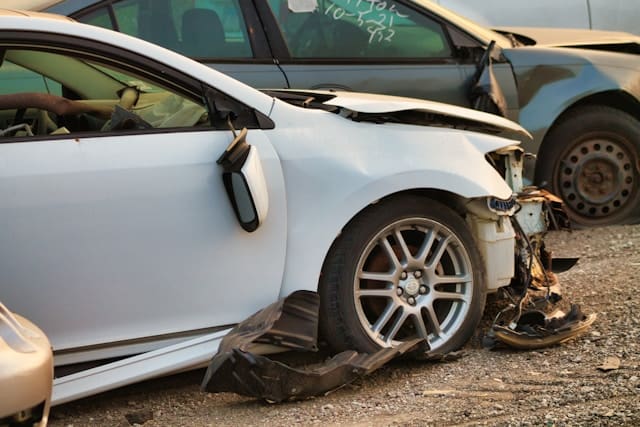
When a car accident disrupts your life, a settlement can offer the financial relief needed to cover medical bills, vehicle repairs, and lost income. A car accident settlement is a negotiated agreement typically between the injured party and an insurance company that resolves a claim without going to trial. While this path often leads to faster resolution than litigation, the waiting period for compensation can stretch for weeks or even months, leaving victims struggling to keep up with everyday expenses. Some victims even explore loans for car accident settlements to manage expenses while awaiting their payout.
This article breaks down the car accident settlement process in clear, actionable terms, covering how settlements work, what factors influence payout amounts, and realistic timelines, so you can make informed decisions during a stressful time.
What Is a Car Accident Settlement?
In legal terms, a car accident settlement is a voluntary agreement in which the at-fault party (or their insurer) pays the injured party a sum of money to resolve the claim and avoid a court trial. Unlike a court verdict, which is decided by a judge or jury after a formal trial, a settlement is reached through negotiation and mutual consent.
Most car accident cases settle out of court for practical reasons: trials are expensive, unpredictable, and time-consuming. Insurance companies often prefer settlements to cap their financial exposure, while victims gain quicker access to funds without the emotional toll of prolonged litigation. Importantly, accepting a settlement usually means waiving the right to sue later, so understanding the full scope of your damages before agreeing is critical.
How the Settlement Process Works
The path to a car accident settlement follows a structured sequence designed to assess liability and determine fair compensation:
- Initial Claim Filing: After an accident, the injured person—or their attorney—submits a claim to the at-fault driver’s insurance company. This includes a demand letter outlining injuries, damages, and the compensation sought.
- Investigation and Evidence Gathering: The insurer investigates the claim, reviewing police reports, medical records, witness statements, photographs, and, in some cases, surveillance footage. Your own documentation (like a detailed journal of symptoms or repair estimates) can significantly strengthen your position.
- Negotiations with Insurance Companies: Insurers rarely accept the initial demand. Instead, they respond with a counteroffer, often one that is lower than expected. This back-and-forth continues until both sides agree on a figure or reach an impasse.
- Final Agreement and Payout: Once terms are accepted, you’ll sign a release form, formally closing the claim. Payment typically arrives within a few weeks, though complex cases involving liens (e.g., from medical providers) may take longer to finalize.
Factors That Affect Settlement Amounts
Not all car accident settlements are equal. The final payout hinges on several key variables:
- Injury Severity and Medical Expenses: More serious injuries like fractures, traumatic brain injuries, or spinal damage lead to higher medical costs and larger settlements. Future treatment needs (physical therapy, surgeries) are also factored in.
- Damage to Property: The cost to repair or replace your vehicle, plus any damaged personal items (laptops, phones, etc.), contributes to the total claim value.
- Lost Wages and Loss of Future Income: If your injuries keep you from working—whether for a short time or permanently—you may be able to claim compensation for lost income. For individuals with long-term disabilities, vocational experts may calculate the diminished earning capacity.
- Pain and Suffering (Non-Economic Damages): These compensate for emotional distress, loss of enjoyment of life, and physical pain. While harder to quantify, they often make up a significant portion of settlements, especially in severe cases.
- Liability and Fault Determination: Settlements shrink or disappear if you’re found partially at fault, depending on your state’s comparative negligence laws. Clear evidence (like dashcam footage or traffic cam video) can solidify your claim and maximize your recovery.
Understanding these elements empowers you to advocate effectively during negotiations—and ensures you don’t settle for less than you deserve.
Timeline for Car Accident Settlements
Car accident settlements don’t follow a one-size-fits-all schedule. Simple cases with clear liability and minor injuries may resolve in 6 to 12 weeks. Moderate injury claims—those involving ongoing treatment or disputed fault—often take 3 to 9 months. Complex cases, especially those involving severe injuries, disputed liability, or multiple parties, can take a year or more to resolve, and in rare instances, even longer if litigation is pending.
Why do some cases settle faster? Clarity is key. When fault is obvious (e.g., a rear-end collision with a police report confirming the other driver ran a red light), injuries are well-documented. Medical treatment concludes quickly, insurers move swiftly. Conversely, delays arise from incomplete medical records, slow diagnostic results, or disputes over who’s at fault.
Common delays include:
- Waiting for medical treatment to reach “maximum medical improvement” (so future costs can be accurately projected)
- Back-and-forth negotiations over liability or valuation
- Internal insurer reviews or staffing shortages
- Unresponsive parties or missing documentation
Patience is necessary, but so is proactive follow-up to keep your claim moving.
Common Challenges Victims Face
Even with a valid claim, victims often encounter significant hurdles:
- Insurance company tactics: Insurers may delay responses, request excessive documentation, or make unreasonably low initial offers in hopes you’ll accept out of desperation. Some may even dispute the link between your injuries and the accident.
- Proving damages: Without thorough medical records, wage verification, or expert testimony, it’s hard to substantiate the full extent of your losses—especially for non-economic damages like pain and suffering.
- Legal complexities: Shared fault rules (such as comparative negligence), policy limits, or questions about coverage (e.g., uninsured motorist claims) can complicate even seemingly straightforward cases.
- Financial pressure while waiting: Mounting bills and lost income create real stress, sometimes pushing victims to settle too early for less than they deserve just to cover rent or groceries.
Recognizing these challenges early helps you prepare and respond strategically.
Managing Expenses While Awaiting Settlement
While your claim is pending, daily life doesn’t pause. Medical co-pays, car repairs, rent, utilities, and groceries still demand payment. Many victims rely on a patchwork of support: personal savings, health insurance (for medical costs), help from family, or short-term side gigs.
For those without a financial cushion, lawsuit funding, also known as a settlement loan, can offer temporary relief. Unlike traditional loans, these are non-recourse advances: you repay only if you win your case. While they come with fees and should be used cautiously, they can prevent financial collapse during prolonged negotiations. Some victims even explore loans for car accident settlements to bridge the gap without sacrificing their claim’s value.
Always review terms carefully and consider this option only after exhausting other resources.
When to Hire a Lawyer
You’re not required to have an attorney for a car accident claim, but legal representation often makes a decisive difference. A skilled personal injury lawyer brings negotiation expertise, knowledge of insurance tactics, and the ability to calculate full damages, including future losses you might overlook.
You should consider hiring a lawyer if:
- Your injuries are serious (e.g., broken bones, concussions, herniated discs)
- Fault is disputed or shared
- You are denied your insurance company claim or offers far less than your documented losses
- You’ve missed significant work or face long-term disability
- The other party is uninsured or underinsured
Lawyers also level the playing field: insurers take claims more seriously when an attorney is involved, and studies show represented claimants typically receive higher settlements—even after attorney fees.
Most personal injury attorneys work on contingency, meaning they only get paid if you win, making legal help accessible without upfront costs.
Tips for Maximizing Your Settlement
Your actions after an accident directly impact your settlement potential. Follow these best practices:
- Keep detailed records: Save all medical bills, prescriptions, repair estimates, pay stubs showing lost wages, and even a pain journal documenting daily symptoms.
- Don’t accept the first offer: Initial offers are almost always low. Wait until you’ve completed treatment and fully understand your damages before settling.
- Stay consistent with medical treatment: Gaps in care can be used by insurers to argue your injuries aren’t serious. Follow your doctor’s recommendations faithfully.
- Communicate carefully with insurers: Avoid recorded statements or signing releases without legal advice. Never admit fault or speculate about your condition.
Small, consistent steps like these build a stronger, more credible claim—and increase your leverage at the negotiating table.
Alternatives to Settlement
While most cases settle, alternatives exist when negotiations stall:
- Mediation: A neutral third party helps both sides reach a voluntary agreement. It’s collaborative, confidential, and faster than court.
- Arbitration: A private arbitrator hears evidence and issues a binding (or non-binding) decision. It’s less formal than trial but still decisive.
- Going to trial: This is the last resort—but sometimes necessary if the insurer refuses a fair offer. Trials carry risks (e.g., losing or getting less than offered), but they also offer the chance for a larger award, especially if punitive damages apply. Your attorney can weigh the odds based on your specific case.
Choosing the right path depends on your goals, evidence strength, and tolerance for uncertainty.
Final Thoughts for Accident Victims
Navigating a car accident settlement is rarely simple—but understanding the process puts you in control. From recognizing how liability affects your payout to knowing when legal help is essential, informed decisions lead to better outcomes.
Remember: a settlement isn’t just about dollars. It’s about securing the resources you need to heal, regain stability, and move forward with your life. Don’t rush the process out of financial stress, and don’t undervalue your suffering.






